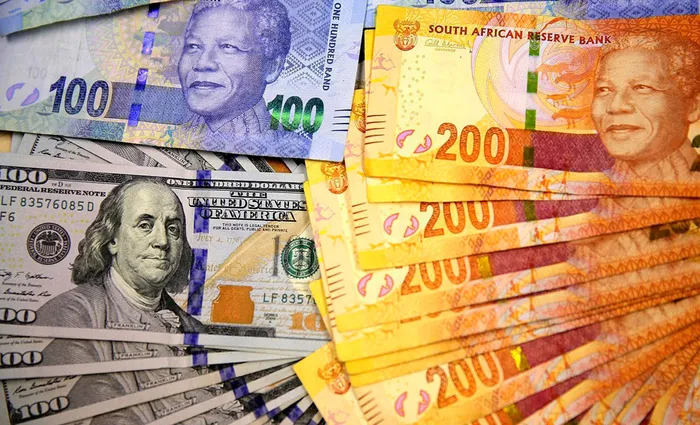IDC falls short of job creation target but excels in transformation funding
INDUSTRIAL SUPPORT

The Industrial Development Corporation's on-balance sheet disbursements rose slightly to R16.3bn in the year to March 30, 2025, from R15.9bn the previous year, which enabled it to deliver development impact, particularly in supporting black industrialists, women, and youth.
Image: File
The Industrial Development Corporation (IDC) did not meet its job creation target for the year to end-March 2025, but it made good progress on its transformation funding, project development, and in growing manufacturing output, its results showed yesterday.
Trade, Industry and Competition Minister Parks Tau wrote in the State-owned IDC’s Integrated Report released Thursday that the IDC had helped to create and preserve 15 732 jobs through its funding. This was lower than the target for the year of 34 023, it only met 46% of the target.
Tau said the job-rich industrialisation was a central aspect of the IDC’s mandate, and he had instructed its board and management to prioritise this objective in the fiscal year 2025/26.
“While the impact of the IDC and the progress made in key priorities is commendable, sustained progress will require ongoing attention to job creation, operational agility, turnaround times, digital transformation, and gender equity in funding,” he said.
CEO Mmakgoshi Lekhethe said in an online presentation she was "particularly pleased" about the funding for transformation, which had increased 20% to R26.6 billion, while funding for black industrialists more than doubled to R23.4bn from R10bn. Some R5bn was invested in startups and R4bn in company expansions.
Lekhethe said their business partners had operated in a difficult environment, with GDP in manufacturing falling 1.2% in the year to March 30, 2025, mining GDP falling 1%, while agricultural GDP was down 5.8% largely due to the impact of disease.
Board chairperson Busisiwe Mabuza said in the report that the IDC’s financial performance was affected by a combination of domestic and global pressures, including geopolitical tensions, port congestion, and transport inefficiencies.
“These challenges affected our business partners and weighed on the performance of our listed equity portfolio, a traditional source of income, resulting in a decline in group profit to R329m, down from R7.5bn the previous year.”
Some 80% of the equity portfolio is invested in Sasol, Kumba, and BHP, which were impacted by lower commodity prices, However, while these were viewed as strategic investments for South Africa and the IDC, a review of the investment portfolio was underway.
Tau said recent trade protectionist measures – such as tariffs imposed by the US – posed significant risks to key sectors, including the motor vehicle industry, by limiting export access, increasing import costs, and disrupting supply chains.
“South Africa must diversify its trade partnerships, with a focus on strengthening regional integration in Africa. Investing in domestic production and building resilient local value chains will be essential. The IDC is well-positioned to support strategic industries in enhancing competitiveness and adapting to this evolving global landscape,” he said.
The IDC underwent leadership changes. Mmakgoshi Lekhethe was appointed CEO in December 2024 and took office in February 2025. New members were appointed to the board in June 2025.
Well-known South African businesswoman Gloria Serobe was appointed chairperson. She is joined by Reon Barnard, Tanya Reeva Cohen, Ayanda Dlodlo, Dr Keitumetse Mothibedi, and Dr Sydney Mufamadi.
Tau said IDC funding was allocated across a wide range of sectors and regions through the year, with a particular focus on the green economy and Just Energy Transition, regional value chains across the continent, inclusive industrialisation (supporting black industrialists, women, and youth), infrastructure and energy security, and small and medium enterprises (SMEs).
Key achievements included establishing a Junior Mining Exploration Fund worth R400 million, facilitating early-stage exploration and development.
The IDC supported critical mineral value chains such as copper, manganese, and rare earth elements, as well as initiatives to beneficiate high-purity manganese oxide and graphite.
The IDC approved funding of R1.8bn for energy projects, adding 219 MW to the national grid, with an additional 2.1 GW scheduled for development. It invested in decarbonising hard-to-abate sectors and launched a flagship green ammonia project in the Northern Cape.
Partnerships were formed with Transnet to enhance rail logistics, while R2.7bn was committed to water infrastructure projects, including the Mokolo-Crocodile and Lesotho Highlands schemes.
The IDC also invested in digital infrastructure through a subsea fibre optic cable and supported logistics improvements via Project Ukuvuselela.
Funding for youth-owned businesses rose significantly to R1.7bn from R456m. However, funding for women-empowered businesses declined to R5.6bn from R11.4bn.
Mabuza said a key outcome was a reduction in job losses in sectors funded and aided by the IDC. The IDC also helped to preserve industrial capacity, notably through strategic interventions in ArcelorMittal and continued support for Tongaat Hulett.
BUSINESS REPORT